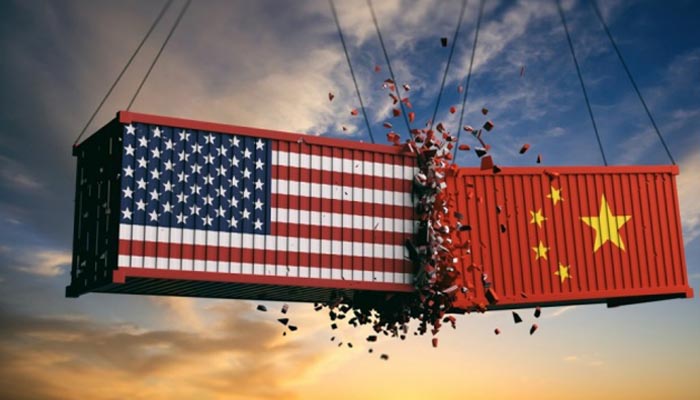TRENDING TAGS :
US-China AI Race: Collaboration or Conflict?
The US and China are neck-and-neck in the AI race. Will this lead to collaborative innovation or potential misuse?
US-China
The race for artificial intelligence (AI) supremacy is heating up between the United States and China. Both countries are pouring significant resources into developing this powerful technology, with the potential to revolutionize various sectors like healthcare, finance, and national security. However, this rapid advancement also raises concerns about potential misuse and the need for responsible development.
The US has a long history of innovation in AI research and development. Silicon Valley giants like Google, Facebook, and OpenAI are at the forefront, pushing the boundaries of AI capabilities. The US government also recognizes the strategic importance of AI and has allocated significant funding for research initiatives. However, concerns exist regarding the potential for AI to exacerbate existing social inequalities and the lack of clear regulations around data privacy and ethical use.
China, on the other hand, has taken a more centralized approach to AI development. The government has set ambitious national goals and heavily invests in research institutions and private companies. China's focus on AI applications aligns with its economic and military ambitions. This rapid progress raises concerns in the US about potential military applications of AI and the lack of transparency in China's development process.
The potential for collaboration between the US and China in AI development is significant. Sharing best practices and fostering joint research could accelerate innovation and lead to breakthroughs that benefit all of humanity. However, the current political climate and lack of trust between the two countries make collaboration challenging.
Here are some key factors to consider:
National Security: Both the US and China view AI as crucial for national security. The US is concerned about China potentially developing autonomous weapons or using AI for espionage. China, in turn, worries about US dominance in the field and the potential for AI to be used to undermine its security interests.
Economic Competition: AI is expected to drive economic growth in the coming decades. Both countries want to be at the forefront of this technological revolution, leading to intense competition for market share and global influence.
Gifts That Delight Everyone- Family, Friends, Offices and More - Check Prices Here
Ethical Considerations: The rapid development of AI raises serious ethical concerns. Issues like bias in algorithms, job displacement, and the potential for autonomous weapons require international cooperation to establish ethical guidelines and regulations.
Despite the challenges, fostering open communication and collaboration between the US and China on AI development is crucial. Here are some potential opportunities:
- Joint Research Projects: Collaboration on specific research areas like healthcare AI or climate change mitigation could benefit both countries.
- Standardization of AI Ethics: Establishing international frameworks for ethical AI development and deployment would promote responsible innovation.
- Global AI Governance: Creating a global AI governance body could facilitate international cooperation and address emerging challenges.
The future of AI depends on the choices made today. Collaboration between the US and China has the potential to unlock the immense benefits of AI for humanity. However, if the current trajectory of competition and suspicion persists, the risks of misuse and destabilization could become a reality. Both countries need to find a way to balance national interests with the need for responsible global leadership in AI development.



